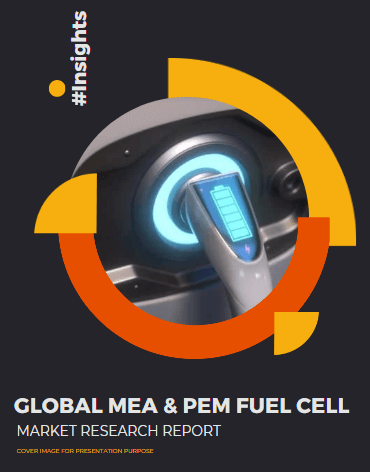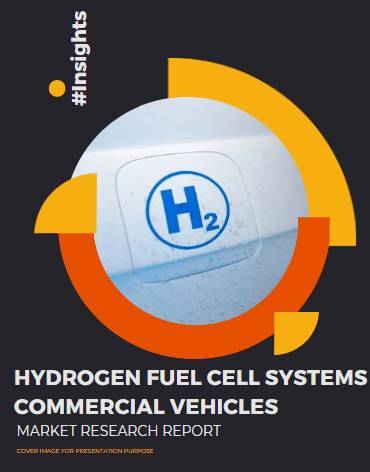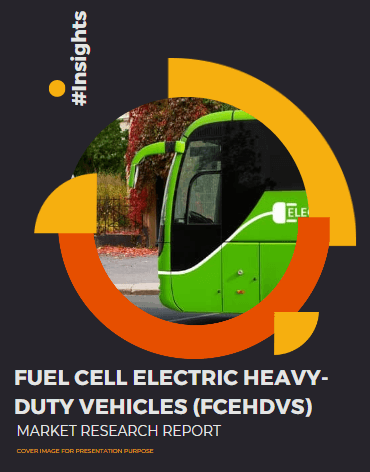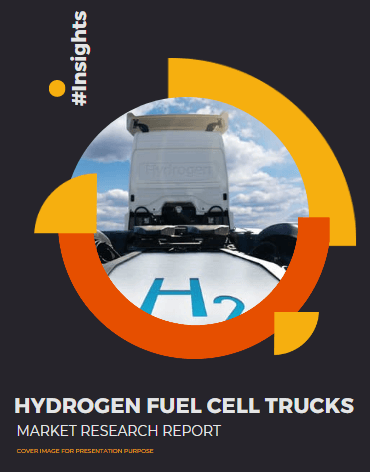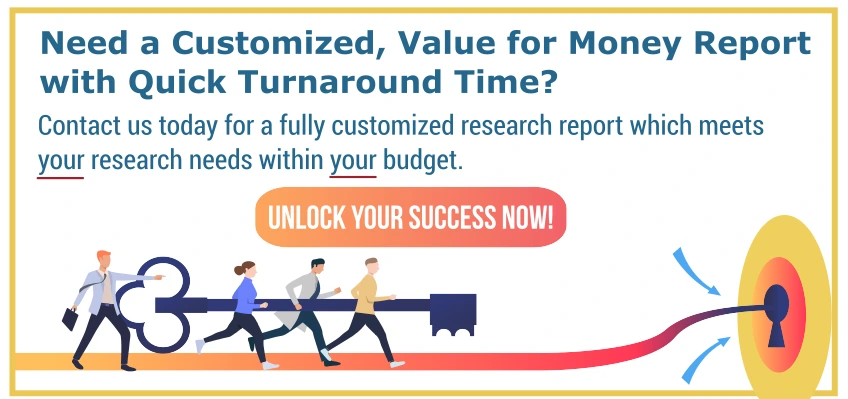Fuel Cell Market Trends and SWOT Analysis: Understanding the Key Factors Shaping the Industry's Future

As the global demand for clean energy solutions grows, the fuel cell market is gaining traction as a promising alternative to traditional power sources. In this article, we will conduct a SWOT analysis of the fuel cell industry, examining the current trends and key factors shaping its future. From technological advancements to regulatory policies, we will explore the industry's strengths, weaknesses, opportunities, and threats and provide insights into how stakeholders can best position themselves for success.
Make sure to read the entire article, as I will include the latest developments in the fuel cell industry.

1 . Strengths:
Environmentally friendly: Fuel cells are one of the cleanest energy sources available today because they emit only water vapor as a byproduct, which reduces greenhouse gas emissions and helps to mitigate climate change. Additionally, fuel cells can reduce air pollution by replacing fossil fuel-powered generators, engines, and boilers that emit harmful pollutants. For example, Bloom Energy's fuel cells have been installed at multiple data centers, which reduces their reliance on diesel generators during power outages and improves air quality in the surrounding areas.
High efficiency: Fuel cells can convert chemical energy into electrical energy with high efficiency, which means they can generate more power per unit of fuel than traditional combustion-based systems. This is particularly important for applications where space is limited, such as electric vehicles. For instance, the Toyota Mirai has an efficiency of 67%, which is significantly higher than the efficiency of internal combustion engines.
Diverse applications: Fuel cells have a wide range of applications, which makes them a versatile energy source. For example, Plug Power's fuel cells are used in material handling equipment, such as forklifts, to reduce emissions and improve productivity in warehouses. Additionally, fuel cells can provide backup power to critical infrastructure, such as hospitals and data centers, ensuring uninterrupted operation during power outages.
Long lifespan: Fuel cells have a longer lifespan than traditional batteries, which reduces the need for replacements and maintenance. For instance, Bloom Energy's fuel cells have a lifespan of 10 years or more, significantly longer than traditional lead-acid batteries' lifespan.
Global MEA & PEM Fuel Cell Market Report
Related Market Research Reports
2 . Weaknesses:
High cost: Fuel cells are currently more expensive than traditional energy sources, which limits their adoption in many applications. For example, the cost of producing hydrogen fuel is high, making fuel cell-powered vehicles more expensive than gasoline-powered ones. However, as the technology matures and economies of scale are achieved, fuel cell costs are expected to decrease.
Limited infrastructure: The infrastructure for producing, distributing, and storing hydrogen is still underdeveloped in many regions, limiting fuel cell adoption. For instance, there are currently only a few dozen hydrogen refueling stations in the United States, limiting fuel cell vehicle adoption.
Dependence on platinum: Some types of fuel cells require platinum as a catalyst, which can be expensive and limit their scalability. However, researchers are exploring alternatives to platinum catalysts, such as iron and cobalt, which could reduce costs and improve scalability.
3 . Opportunities:
Government support: Many governments are investing in research and development for fuel cell technology and offering incentives for businesses and individuals to adopt them. For example, the US Department of Energy has a program called the Fuel Cell Technologies Office, which invests in fuel cell research, development, and demonstration projects. Additionally, several countries, including Germany and Japan, offer tax incentives and subsidies for purchasing fuel-cell vehicles.
Growing demand for clean energy: As concerns over climate change and air pollution grow, the demand for clean energy sources like fuel cells is likely to increase. For instance, the International Energy Agency estimates that the global demand for hydrogen could increase tenfold by 2050, which could lead to a significant increase in the adoption of fuel cell technology.
Technological advancements: Ongoing advancements in fuel cell technology are likely to improve their efficiency and reduce their cost, making them more competitive with other energy sources. For example, researchers are exploring new types of fuel cells, such as proton exchange membrane fuel cells, which are more efficient and require less platinum than traditional fuel cells.
4 . Threats
Competition from other clean energy sources: While fuel cells are one of the cleanest energy sources available, they face competition from other clean energy sources, such as solar and wind power. These alternative sources of energy have become increasingly cost-competitive in recent years, which could limit the adoption of fuel cells in some applications.
Uncertainty surrounding hydrogen supply: The production and distribution of hydrogen, which is the primary fuel for many types of fuel cells, can be complex and expensive. Additionally, the availability of hydrogen may be limited in some regions, which could limit the adoption of fuel cell technology.
Safety concerns: While fuel cells are generally safe, there have been some high-profile incidents in the past, such as the explosion of a hydrogen refueling station in Norway in 2019. These incidents could lead to public skepticism about the safety of fuel cell technology, which could limit its adoption.
Economic downturns: Economic downturns, such as recessions or depressions, can have a negative impact on the adoption of new technologies, including fuel cells. During economic downturns, businesses and individuals may be less willing or able to invest in new technologies, which could slow the growth of the fuel cell industry.
Patent disputes: The fuel cell industry relies on patents to protect their intellectual property, and disputes over patents could limit the adoption of fuel cell technology. For example, in past, two fuel cell companies, Ballard Power Systems, and Plug Power were involved in a patent dispute over fuel cell technology. Such disputes can result in delays and uncertainty for businesses looking to invest in fuel cell technology.
5 . Latest From Fuel Cell Industry:
Advent Technologies Expands Production Capacity to Meet Global Demand for Fuel Cells
Advent Technologies, a company that specializes in fuel cell and hydrogen technology, has established a new facility in Charlestown, Massachusetts, for research and development (R&D) and manufacturing. This 21,000-square-foot facility is located in Boston's research and innovation hub, allowing Advent to quickly ramp up production and meet the growing demand for electrochemical components in the clean energy sector worldwide.
The state-of-the-art facility is equipped with modern coating machines to aid in the smooth transition from prototypes to initial production runs. A fully-equipped analytical facility also focuses on quality control, fuel cell, and electrolyzer test stations. Advent plans to produce a range of innovative products, including the ion-pair Advent MEA, which is currently being developed in partnership with the US Department of Energy.
Advent's goal is to become a leading player in the hydrogen industry by manufacturing next-generation fuel cells that are capable of lasting at least three times longer and delivering twice the power density of its previous systems. Moving to the Hood Park facility will allow Advent to substantially increase the production capacity of the ion-pair Advent MEA in accordance with its expansion plan.
Moreover, the new facility is expected to create numerous employment opportunities for young material science and fuel cell engineering professionals, as Advent aims to provide job opportunities and contribute to the local economy's growth.
SFC Energy and FC TecNrgy's joint venture to contribute to global Race-to-Zero
SFC Energy AG, a German company that supplies hydrogen and methanol fuel cells, has partnered with FC TecNrgy Pvt Ltd. to establish a new fuel cell manufacturing facility in India. The partnership also aims to develop further markets in the country.
The new subsidiary, SFC Energy India Ltd., will be responsible for the manufacturing and quality assurance of EFOY Hydrogen and EFOY Methanol fuel cells. On the other hand, FCTec will provide after-sales service, developing, installing, and integrating customized fuel cell solutions.
The manufacturing and assembly center will be located in Udyog Vihar, Gurgaon, and it aims to become one of India's most advanced fuel cell production facilities. The facility's total area covers 35,000 square meters.
This partnership is in line with India's National Green Hydrogen Mission. The mission aims to replace generators in various sectors, including transportation, military, and critical infrastructure such as telecommunications. The Indian government has invested an estimated USD 44 billion by 2030 in this mission.
The partnership is part of the global Race-to-Zero and is a significant step towards the adoption of clean energy solutions in India. SFC Energy CEO, Dr. Peter Podesser, said the opening of the facility in Gurgaon is a strong signal in this direction.
Honda Collaborates with GM on Next-Gen Fuel Cell System
Honda has repurposed fuel cell stacks from its Clarity fuel cell sedans to create a zero-emissions power station. The station uses eight fuel cell stacks and comprises two 250 kW modules, each with four fuel cell systems. The system offers an advantage over a diesel-powered backup generation because it doesn't produce local air pollutants and operates at reduced noise levels. Honda intends to expand the range of applications that use fuel cell systems to stimulate demand for hydrogen. The next iteration of Honda’s power station will use a new generation of its fuel cell system and be deployed at its factories and data centers throughout the U.S.
Honda has collaborated with General Motors on the development of its next-gen fuel cell system, which will be produced in Michigan and debut in a Honda CR-V crossover with a target launch date of late 2024. The technology is expected to reduce fuel cell development costs while increasing their durability and low-temperature resistance. Meanwhile, the commercial vehicle market offers opportunities for hydrogen since it has high energy density and can be refueled quickly, making it more suitable for large mobility vehicles with high operating schedules. The commercial vehicle market has been the primary focus of fuel cell truck startup Nikola Corp.
Honda's CASE & Energy business unit will change its name to Sustainability and Business Development in April, with a focus on vehicle recyclability and creating new business models around carbon-neutral products and services. As Honda focuses on growing its stationary power source business, hydrogen presents an opportunity in commercial vehicle applications where quick refueling is required.

